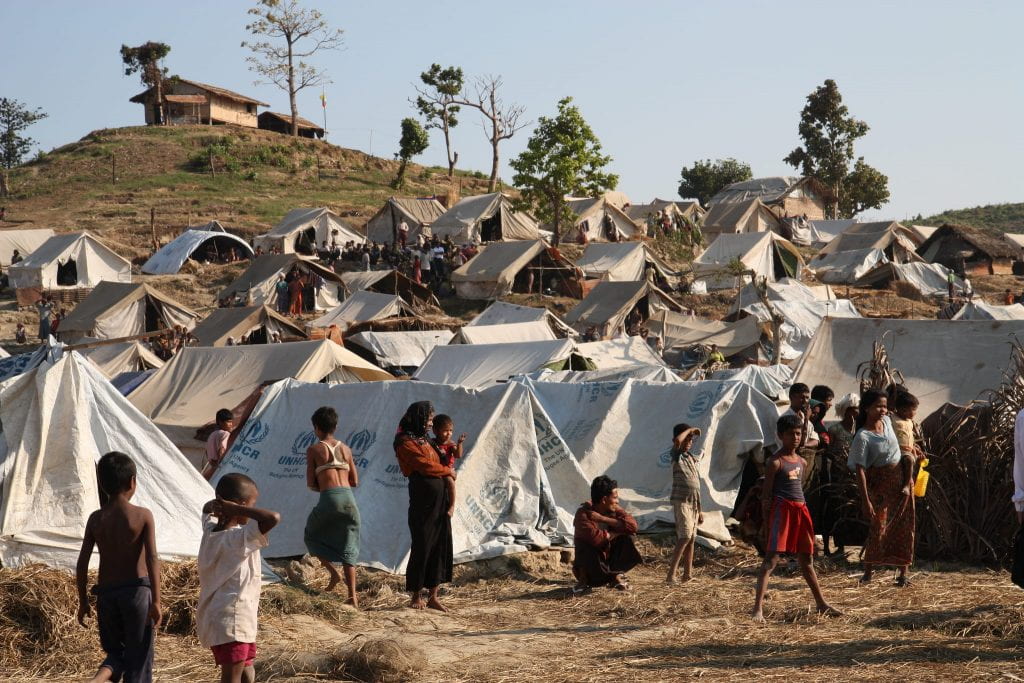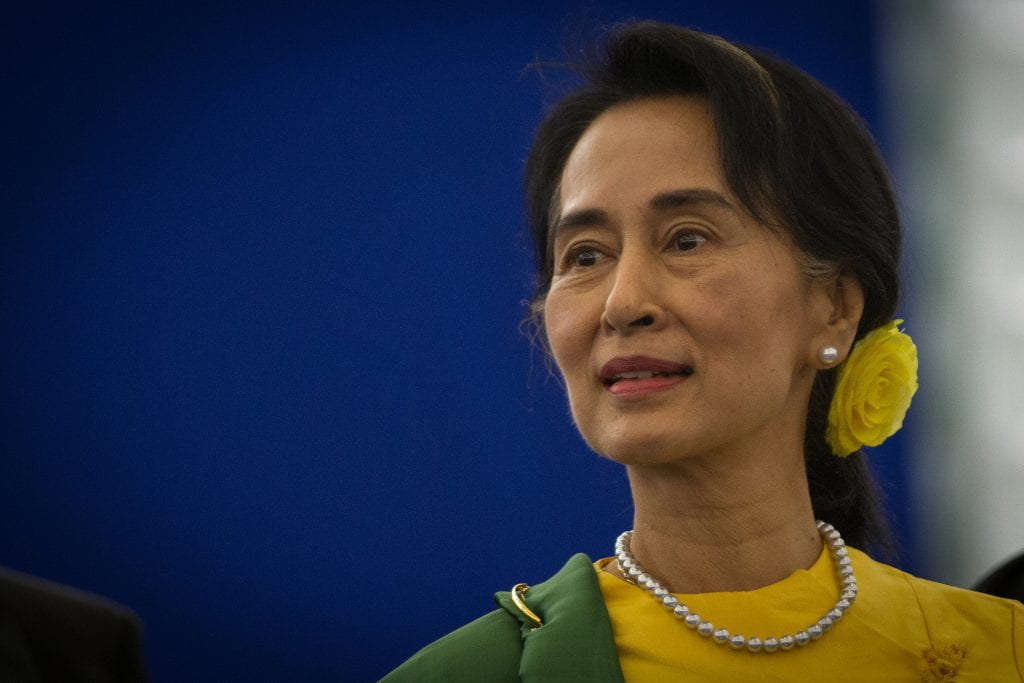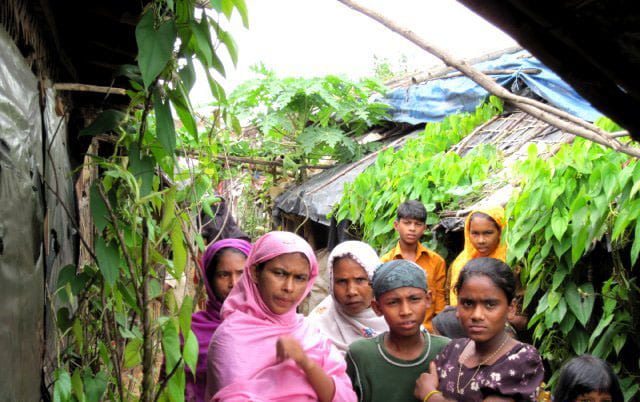**This is a repost. Please make plans to join us for a lecture and discussion with Dr. Wakar Uddin on Monday, Nov 13 at 630pm, in the Edge of Chaos.

Trigger warning: this blog references graphic physical and sexual violence. Please do not read if easily affected by these topics.
“Now is the worst it has ever been. We have heard from our grandparents that there were bad things happening in the past too, but never like this.” – interviewee from Pwint Hpuy Chaung commenting on the violence in the Rhakine, Myanmar
Ethnic cleansing. State-sponsored violence. Genocide. This is what the Muslim Rohingya and most scholars would call the egregious human rights violations carried out by the state over the last eleven months. Myanmar’s government disagrees. The village-burning, mass-murdering campaign has been a legitimate effort against militant Rohingya insurgents from their perspective. The Rohingya are members of an ethnic and religious minority group that has suffered discrimination from the Buddhist-dominated state for years. A large population of Rohingya live in the Rhakine, an extremely poor area on the coast of Myanmar. Though the Rohingya have been living in Myanmar for generations, the ethnic majority considers the group to be illegal Bengali outsiders. The minority group has been denied citizenship for decades and has recently had restricted travel with the institution of state-sponsored “Muslim-free zones.” The decades of discrimination came to a head in last October, when Rohingya militants killed nine police officers. In response, Myanmar government began a colossal campaign to push Rohingya into Bangladesh through burning entire towns, executing villagers, destroying food supplies, and widespread sexual violence. Officials describe the campaign as targeting militant insurgents, yet vulnerable groups like women, children, and the elderly have been beaten, murdered, and raped at a wide level. Entire communities have been devastated through arson, executions, and looting. The violence has been strategic in an effort to drive out the Rohingya. The mixing of mud with village grain supplies forces surviving villagers to flee or starve.
Interviews with refugees from the region conducted by the United Nations Office of High Commissioner on Human Rights (OHCHR) report of atrocities like murders of newborn babies, massive gang rapes of girls as young as eleven, houses set on fire with entire families locked inside, and brutal beatings of pregnant women.
“In Kyet Yoe Pyin I saw the military killing a newborn baby of a distant relative … My relative could not come out [of her house] as she was in labour so they dragged her out and hit her stomach with a big stick. They killed the baby by stomping on it with their heavy boots. Then they burned the house.” -19 year old woman from Ngar Sar Kyu (OHCHR 2017)
Much of the violence is fueled by decades of religious and ethnic discrimination against the Rohingya, a majority Muslim population within a Buddhist state. When the October 9, 2016 attack occurred, religious tension reached a boiling point. As a part of the government’s reaction, state military officers have been committing heinous crimes against innocent Muslim individuals. Survivors report their attackers as saying, while raping or beating them, “What can your Allah do for you? See what we can do?” Women systematically dragged into holy places to be gang-raped by groups of soldiers. A long beard is a religious practice among the Rohingya; however, several religious leaders have been publicly humiliated by having their beards shaved or burned off with melting plastic. Holy Qurans have been gathered and burned, and numerous religious leaders are kidnapped and murdered. There is also the denial of families to perform religious ceremonies to mourn their dead.
“I was rounded up, along with 30 others villagers, who were mainly youngsters. They tied my hands behind with a rope. They burnt plastic and dropped melted plastic on my feet and neck. They also burnt my beard with burning plastic.” – Religious leader (OHCHR 2017).

Activists worldwide, including Malala Yousafzai and Archbishop Desmond Tutu, have called the Myanmar government’s response to last October’s incident “grossly disproportionate”. Many specifically criticize Myanmar’s de facto leader and Nobel laureate Aung San Suu Kyi for her leadership during this period. Aung San Suu Kyi won the Nobel peace prize in 1991 “for her non-violent struggle for democracy and human rights” (Nobel Peace Prize 1991). Today, some see this as incredibly ironic, even labelling the atrocities of her administration as crimes against humanity. In fact, the U.N. High Commissioner on Human Rights Zeid Ra’ad Al Hussein calls the campaign “a textbook example of ethnic cleansing.” Harsh V. Pant suggests that while Suu Kyi, the de facto leader, does not control the military, “her refusal to condemn military abuses against Rohingya provides the generals with political cover”.
Aung San Suu Kyi’s leadership as a prominent factor is why international forces have not yet intervened. Suu Kyi is a much-loved public figure, has garnered enough legitimacy to make the violence seem possibly justified. Suu Kyi’s struggle to gain democracy in Myanmar nearly a decade ago brought globally acclaimed; however, these new democratic processes have magnified prejudices of the public. Suu Kyi herself has expressed anti-Muslim sentiment at times. Peter Popham describes a 2013 interview conducted by BBC presenter Mishal Husain, the Nobel laureate was heard saying angrily, “no one told me I was going to be interviewed by a Muslim.” This statement is a strong indication that Aung San Suu Kyi’s non-violent legacy should be dismissed when considering the legitimacy of Myanmar’s claims.
The Myanmar government has recently blocked UN forces from entering the country to administer aid so refugee testimonies are the source of much of the information on the violence. Over half of the refugees report family members still missing after officers rounded up important male villagers–teachers, businesspersons, and religious leaders. Fifty-two percent of women reported experiencing sexually violence in some way – usually during public nude line-ups of female villagers, where officers grope, slap, and pinch the vulnerable women. Most reported occurrences of mass executions by knife or shooting, including babies, toddlers, children, women, and elderly people. OHCHR in January’s flash report is the source of the collected data and all the reports of violence cited earlier.

These issues have been ongoing since last October’s attack, but fighting began anew last month when Rohingya militants once again launched an attack that killed nearly a dozen security officers. The group that launched the attack call themselves ARSA, or the Arakan Rohingya Salvation Army. Nearly three-hundred thousand Rohingya are currently fleeing this violence, but have faced obstacles every step of the way. The path to the Bangladesh border is treacherous already, weaving through mountains and jungles, but Myanmar security forces have added additional danger. Yanghee Lee, Special Rapporteur on the human rights situation in Myanmar, said, “Rohingyas [are] being indiscriminately killed and injured by military gunfire, even while fleeing, and helicopters and rocket-propelled grenades being used against the civilian population.” Amnesty International reports that Myanmar security forces have been putting land mines along the route of fleeing refugees. Even if the violence dies down and refugees attempt to return home, they will likely be denied entry back into Myanmar. The government has recently released a statement that any returnees are required to show proof of citizenship — something that has been denied to Rohingyas for decades.
The international response has been halfhearted at best. Entities like the United Nations and Amnesty International have collected information through interviews and satellite surveillance, yet, Myanmar still refuses to allow international aid. India, one of the most powerful countries in the region, has shown support to the Myanmar state by condemning ARSA and being hostile to Rohingya refugees. U.S. Ambassador to the UN Nikki Haley seems to tiptoe around the matter by similarly condemning Rohingya violence but reminding Myanmar to “adhere to international humanitarian law, which includes refraining from attacking innocent civilians and humanitarian workers.” In a situation of clear ethnic cleansing, politically delicate statements like these are insufficient.
Human rights violations at this level and scale are painful to read about and not become stricken with grief. However, we must keep in mind that hope is still alive—the world is in the process of becoming a better place, and awareness of these topics is vital to that change. To those who are reading this, remember to treat yourself kindly. When the horrors of the world make you feel hopeless, remember the good that still exists. Remember to take a break every so often to recharge. Whenever I feel like the world is just too bad to improve, I remind myself of this quote by Anne Frank: “I hold onto my ideals because, in spite of everything, I still believe that people are good at heart.”
The Birmingham Islamic Society (BIS) will host a demonstration for Rohingyas outside the Hill Student Center on Saturday, September 16 at 12-1:30PM. The event is free and open to the public.
